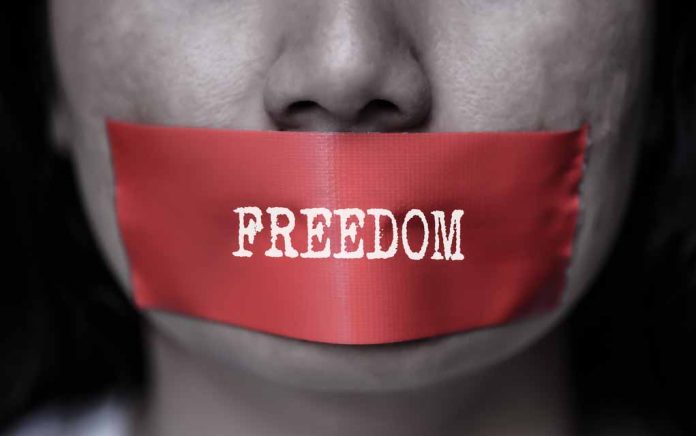
Amid rising tensions over speech regulation, Vice President JD Vance’s critique of Germany’s legal measures has stirred a significant debate on their potential impact on US-European relations.
Top Takeaways
- JD Vance calls Germany’s speech regulation “Orwellian” and warns it could strain US-European ties.
- The disagreement highlights differing views on free speech between the US and Europe.
- German authorities defend their laws as protective of democracy against extremism.
- Vance’s speech at the Munich Security Conference criticized European restrictions on free discourse.
Renewed Debate on Speech Regulation
A “60 Minutes” segment showcasing Germany’s stringent approach to regulating online speech has sparked discussion on both sides of the Atlantic. This has been further fueled by JD Vance’s outspoken critique of the “Orwellian” nature of these regulations, which he argues impinge upon the democratic principle of free expression. In Germany, authorities argue these laws are necessary to curb hate speech and protect societal harmony.
While American conservatives and free speech advocates express concern over these laws, German prosecutors defend them as crucial for maintaining order. Online offenses, including defamation and spreading false information, are met with legal consequences in Germany, signaling a stark contrast to the broad protections offered by the US First Amendment.
Insulting someone is not a crime, and criminalizing speech is going to put real strain on European-US relationships.
This is Orwellian, and everyone in Europe and the US must reject this lunacy. https://t.co/WZSifyDWMr
— JD Vance (@JDVance) February 17, 2025
US-European Relations at a Crossroads
At the Munich Security Conference, JD Vance emphasized the potential strains such regulations could place on longstanding transatlantic partnerships. During his speech, Vance noted, “The threat that I worry the most about vis-à-vis Europe is not Russia, it’s not China, it’s not any other external actor. What I worry about is the threat from within, the retreat of Europe from some of its most fundamental values, values shared with the United States of America.” This sentiment aligns with growing concerns over European legal measures stifling free discourse, particularly affecting right-wing parties.
German Defense Minister Boris Pistorius has dismissed comparisons of these policies to authoritarian regimes. He argues the laws are preventive measures necessary for democratic protection. However, the division between how freedom of speech is interpreted in the US versus Europe underscores an escalating challenge for mutual diplomatic relations.
Future Implications for Democracy
As Germany’s laws continue to mitigate far-right narratives and controversial online content, the balance between free expression and societal protection remains contentious. Critics argue that these measures are reminiscent of dystopian control, while supporters highlight their role in safeguarding democracy against harmful ideologies.
Marco Rubio, supporting Vance’s concerns, remarked: “I thought it was actually a pretty historic speech, whether you agree with him or not. I think the valid points he’s making to Europe is we are concerned that the true values we share … are things like free speech and democracy … and when you see backsliding and you raise that, that’s a very valid concern.” This ongoing debate and its implications for democracy and transatlantic alliances will be crucial to observe.
For the US, ensuring freedom of speech remains unbridled is a core democratic value; however, its application and interpretation continue to evolve across the globe. Such discussions may determine the future trajectory of international relations and democratic principles in an increasingly digital era.
Sources:
- Americans Shocked by ’60 Minutes’ Report on German Speech Policing
- JD Vance blasts German prosecutors for ‘criminalizing’ speech: ‘This is Orwellian’
- JD Vance rips ‘Orwellian’ German prosecutors for ‘criminalizing speech,’ says it will hamper Europe-US relations




